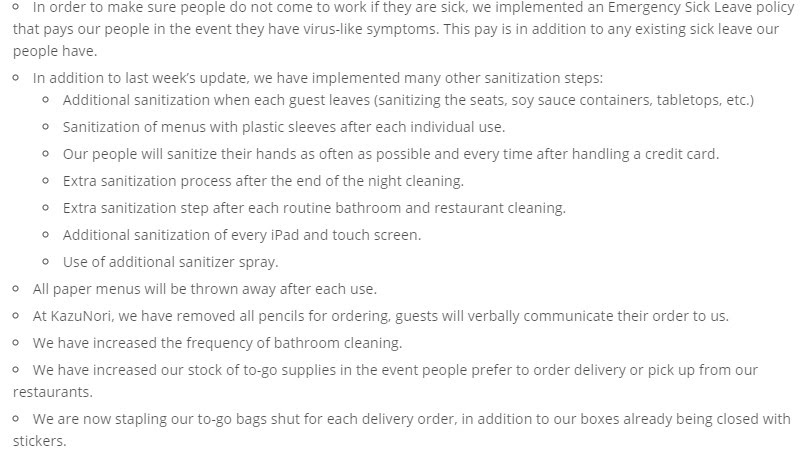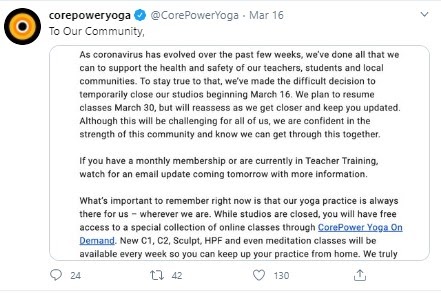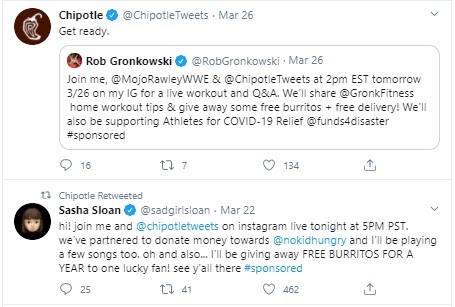COVID-19 has resulted in numerous lifestyle changes for everyone. Subsequently, your target audience’s needs have also changed.
Most of your potential customers are not thinking about what car to buy, what clothes to wear, or which tech products to get.
As a result, marketers are also battling a new normal. They’re re-evaluating their strategies.
If you post something that you had planned two months ago, it may not be relevant anymore. Plus, you may come across as insensitive.
American low-cost carrier, Spirit Airlines, learned this the hard way. They sent out a promotional email that was written before the crisis began.
It said, “Never a better time to fly.”
Embarrassing, right?
During these challenging times, you need to focus on reaching out to your customers and building a strong relationship with them.
Not sure how?
In this podcast episode, Ted Rubin, CMO of Photofy, gives us some actionable tips on this topic.
He evangelizes the concept of Return on Relationship or RoR and has authored several books on it. In this episode, he discusses ways to use RoR to boost customer loyalty during the crisis.
Before we can get into that though, let’s define Return on Relationship:
What is Return on Relationship?
According to Ted Rubin, Return on Relationship is the value accrued by a brand due to nurturing relationships. It’s the value a brand gains over time through loyalty, sharing, and recommendation.
The stats used to gauge a brand’s relationships with customers include retweets, video views, positive ratings, followers, and other similar metrics.
These metrics indicate the effectiveness of a brand’s efforts to create value as well as the response from the audience. If brands work on developing long-term relationships with customers, they can also get higher ROI.
That brings us to the next question.
During a time of crisis, how do you build and strengthen these relationships?
Let’s take a look.
Effective Tips on How to Improve Relationships With Customers During Crisis
During uncertain times, the last thing that any marketer wants to do is to appear opportunistic or insensitive.
It means reviewing strategies, improving messaging, and becoming creative.
You need to find a way to remain top of mind of your audience without looking opportunistic.
But how do you do that?
Here are some tips:
1. Make It About the Customer
In the podcast episode, Ted says that he understands that businesses are losing money. But he advises business owners to refrain from resorting to hard selling techniques.
By trying to sell something that people don’t need right now, Ted believes, you are likely to damage your reputation. The repercussions could outweigh the little amount of income that you may be able to bring in.
Instead of selling, your focus should be to be a good community member and let customers know what steps you are taking to help them stay safe.
Empathize with the affected and show that your company understands the situation.
Take a cue from Sugarfish, a sushi restaurant chain in Los Angeles and New York.
They regularly publish updates to tell their customers what precautions they are taking to ensure client safety.
Image via Sugarfish
This act can reassure your customers and reinforce their loyalty.
To improve on your Return on Relationship, ensure that you communicate your safety measure in a brief message.
You should also find ways to directly help your customers.
For instance, Lyft is offering free rides so that vulnerable communities can travel and get essential commodities.
2. Communicate Proactively Through Multiple Channels
At times like this, your business needs to make use of digital channels to communicate with consumers.
As more people stay at home, their source of information and entertainment is likely to be digital channels.
Invest some time into communicating with your audience proactively through social media, your website, and email. Tell them if you’ve closed your doors or if your hours of business have changed.
Inform customers how they can stay connected with your business, now that they are spending most of their time at home.
Can they place an order on your ecommerce platform? Do you make deliveries? Can they still access your customer service?
Try to communicate all details effectively.
Apple, for example, closed all their retail stores and encouraged users to use their online stores via messages on their website.
Image via Apple
3. Leverage Video Conferences and Live Videos
To improve your Return on Relationships, continue to make it easy for customers to access your services digitally. You should also offer them value, so that they may not forget what made them choose your business over a competitor.
To stay connected, stream live videos, or host webinars.
Take advantage of features like Instagram Stories and Facebook Live to keep customers engaged, build brand trust, and sell your products.
CorePower Yoga, for example, closed all their studios but encouraged students to access a collection of their online classes and continue practicing from home.
Members who did not want that option were allowed to freeze their membership until later.
Image via Twitter
4. Get Innovative
To boost your Return on Relationships, find new ways to offer customers products/services that help them solve their problems. Look for ways to be helpful and useful.
Show them how you are innovating while still maintaining your value propositions.
Chipotle, for example, currently hosts virtual events where, apart from distracting customers from the current crisis, they offer them a chance to win food.
Image via Twitter
As they say, necessity is the mother of innovation.
After temporarily halting car manufacturing, Ford and General Motors began manufacturing ventilators to help coronavirus patients. Global distillers are also helping combat shortages by producing hand sanitizers.
By injecting hope into their lives, you can let consumers know that you care about them and are contributing towards solving the problem.
Do not also be afraid to ask your customers what you can do to support them. By giving them what they need, you can build a strong foundation for your customer relationships.
Prepare for the Future by Building Relationships Now
According to Ted, you should nurture relationships even when you are not looking for something in return.
Even if you don’t make a profit, you need to find ways to navigate the disruption that the pandemic has caused.
Show your customers that you are ready to go beyond profit-making to ensure they feel safe and find solutions to their current problems.
Doing this will inspire confidence in your brand and strengthen relationships with them. It can help you cultivate goodwill that will ensure they remain loyal customers in the future.
Do you have any questions about building relationships with customers? Please share your queries in the comments section below.

Shane Barker is a digital marketing consultant who specializes in influencer marketing, product launches, sales funnels, targeted traffic, and website conversions. He has consulted with Fortune 500 companies, influencers with digital products, and a number of A-List celebrities.











